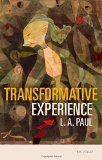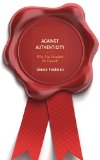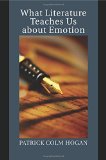new book – ‘Transformative Experience’ by L.A. Paul
December 31, 2014
Transformative Experience by L.A. Paul (Oxford University Press, 2015)
(kindle ed.), (amazon.co.uk), (UK kindle ed.)
Book description from the publisher:
As we live our lives, we repeatedly make decisions that shape our future circumstances and affect the sort of person we will be. When choosing whether to start a family, or deciding on a career, we often think we can assess the options by imagining what different experiences would be like for us. L. A. Paul argues that, for choices involving dramatically new experiences, we are confronted by the brute fact that we can know very little about our subjective futures. This has serious implications for our decisions. If we make life choices in the way we naturally and intuitively want to–by considering what we care about, and what our future selves will be like if we choose to have the experience–we only learn what we really need to know after we have already committed ourselves. If we try to escape the dilemma by avoiding an experience, we have still made a choice.
Choosing rationally, then, may require us to regard big life decisions as choices to make discoveries, small and large, about the intrinsic nature of experience, and to recognize that part of the value of living authentically is to experience one’s life and preferences in whatever way they may evolve in the wake of the choices one makes.
Using classic philosophical examples about the nature of consciousness, and drawing on recent work in normative decision theory, cognitive science, epistemology, and the philosophy of mind, Paul develops a rigorous account of transformative experience that sheds light on how we should understand real-world experience and our capacity to rationally map our subjective futures.
Google Books preview:
See also: Author’s website, Edge.org talk
Comments (0) - cognitive science,new books,philosophy of mind








